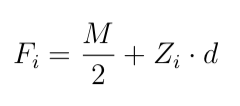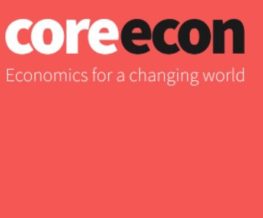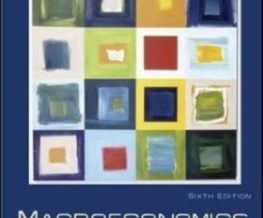General
1 Although the teaching of economics and similar subjects is very different worldwide and, the tasks of the IEO will be composed in a way that facilitates equal competition. The tasks will not be aimed primarily at testing the knowledge of theory. A significant share of the tasks will be practical-oriented, test analytical skills and curiosity.
2 Economics and Finance parts of the competition are individual and closed-book. A contestant may use a simple (non-programmable) pocket calculator and a dictionary for translating words. A dictionary must be clean — without any notes or extra sheets of paper in it. Smartphones and other devices are prohibited.
Case study part is a team competition and lasts for two days — 1) day of preparation; 2) day of presentation. During the day of preparation, contestants may use any online and offline materials but it is prohibited to contact other people for help.
3 In every part of the competition, the result is first computed in raw points. Raw points are then normalised to get the final points according to the following procedure.
3.1 Let Gi be the raw score of the contestant (or team in Part 3) i in the part of the Olympiad, A — the average of all raw scores, σ — standard deviation of all raw scores. Then we define Z-score of the contestant i as:
 3.2 The final result of the participant i is then calculated as follows:
3.2 The final result of the participant i is then calculated as follows:

Where M is the maximum possible result of this part (in final points) specified in this Syllabus and d is chosen so that the highest Fi equals M.
3.3 If some scores change in the process of moderation, Z-scores and final scores are recalculated.
3.4 The maximum individual final points for the parts of the competition (variable M) are the following: 100 for Economics section, 50 for Financial Literacy section, 50 for Business (Case Study) section. The individual points for Business (Case Study) part equal the team points for the part.
3.5 The total individual results are calculated as a sum of all three final scores. Ties are broken by taking the score from the Economics part. If still tied then the Finance section results are taken.
3.6 The total team results are calculated as a sum of:
- the average final score of team members in the Economics section divided by 2;
- the average final score of team members in the Finance section;
- the team score in Business (Case Study) section.
Ties are broken by taking the average team score from the Economics part. If still tied then the Business (Case Study) section results are taken.
1 Economics
1.1 The tasks in Economics (first part of the competition) should test contestants’ understanding of basic economic concepts and models, their curiosity about the field and analytical skills. This section of the competition is individual.
1.2 The main recommended textbook for the Economics section is The Economy by the CORE Economics Education project. CORE (which stands for Curriculum Open-access Resources in Economics) offers a modern way of teaching economics that is widely accessible for students with any backgrounds and available online at http://www.core-econ.org (free of charge).
1.3 Supplementary recommended textbook for preparation is Principles of Economics by N. Gregory Mankiw (newest edition). It represents the more traditional approach to teaching introductory economics.
1.4 The two textbooks mentioned above are available in English, Mankiw’s textbook is also translated into other languages. If these resources are unavailable for contestants, they can use other economics textbooks of principles level.
1.5 Economics section of the IEO includes 20 multiple choice questions and 5 problems; the overall time limit is 235 minutes. Multiple choice questions test the basic understanding of economics concepts (which may include simple calculations). Each of the 5 problems will stated either quantitatively (include calculations) or qualitatively (include extensive explanations) or both.
1.6 In every paper, all 20 multiple choice questions will be graded (4 raw points for the correct answer, minus 1 raw point for the incorrect answer). 5 problems will represent 5 different topics of economics; the contestant must explicitly choose 4 of them to be graded in their paper. The maximum grade for each problem is 30 raw points. If a contestant provides solutions for all 5 problems, all of them will be commented by the Jury but only 4 will add to the contestant’s score. If in this case, a contestant has failed to specify solutions to be graded, the maximum grade of 5 answers will be excluded.
1.7 Each problem and multiple choice question must belong to one or more of the following topics:
- Specialization and the gains from trade;
- Technology and long-run growth;
- Game theory: conflict and cooperation;
- Institutions;
- Firms;
- Competitive markets for goods and services (including government interventions and non-clearing markets);
- Labour market;
- Market failures;
- Macroeconomic data: measuring income, inflation and unemployment;
- Money;
- Fluctuations and macroeconomic policy;
- Open economy;
- Inequality;
- Environment;
- New industries and markets: innovations and networks.
The problems and multiple choice questions should be diverse in topics.
2 Financial Literacy
Contestants will compete in creating a Personal financial plan. It will be an online imitation contest about the real financial world. Contestants will deal with various financial institutions, economic processes, and crisis situations. They will have to choose useful financial instruments that should work for the protection and multiplication of the game capital. The game process will require participants to plan, make decisions, think critically, evaluate the profitability of their investments, and, most importantly, to achieve the goal set. Financial model used in the competition will be universal, thus no specialized knowledge of the economy of any particular country is required.
Every contestant will be working for his or her individual result. The raw score will be calculated based on the fact of achieving the goal and extra money that will be left by the end of the imitation.
Participating in this section of the IEO requires basic knowledge of financial concepts. Some of them can be found at:
- http://www.practicalmoneyskills.com/learn
- https://www.pwc.com/us/en/about-us/corporate-responsibility/access-your-potential/financial-literacy-curriculum.html
- https://bettermoneyhabits.bankofamerica.com/en
- http://www.citigroup.com/citi/citizen/community/curriculum/teens.htm
3 Business (Case study)
3.1 The competition in business is a team competition and includes the oral presentation of results. It is recommended that presentations are supported by slides or other forms of visual aids. The presentations should be in English. In exceptional cases, if no contestant in a team has a sufficient command of English, the Jury may allow presenting in another language.
3.2 In addition to books listed below, the PC recommends the following materials. These materials are sent to the team leaders and should be transmitted to the contestants.
- Here you can find the example of a case for that part of the contest.
- Here you can read a special guidebook by our partners (password is provided by an e-mail for all team leaders).
3.3 Specific criteria for evaluation of the presentations are listed in the guidebook (page 26). The Jury will provide specific recommendations together with the task on the day of preparation.
- Useful literature for case solving:
- The Pyramid Principle, Barbara Minto
- Crack the Case, David Ohrvall
- The Trusted Advisor, D. Maister, C. Green, R. Galford
- Useful literature for data analysis:
- The McKinsey Way, Ethan Rasiel
- Strategic Management, Thompson Strickland
- The Fifth Discipline, Peter Senge
- Thinking Fast and Slow, Daniel Kahneman
- Case in Point, Marc Cosentino
- BCG on Strategy, C. Stern, M. Deimler
- Useful literature for presentations:
- Say It With Charts, Gene Zelazny
- Unfolding the Napkin, Dan Roam
- Visualize This, Nathan Yau
- The Pyramid Principle, Barbara Minto
- Slide:ology, Nancy Duarte


